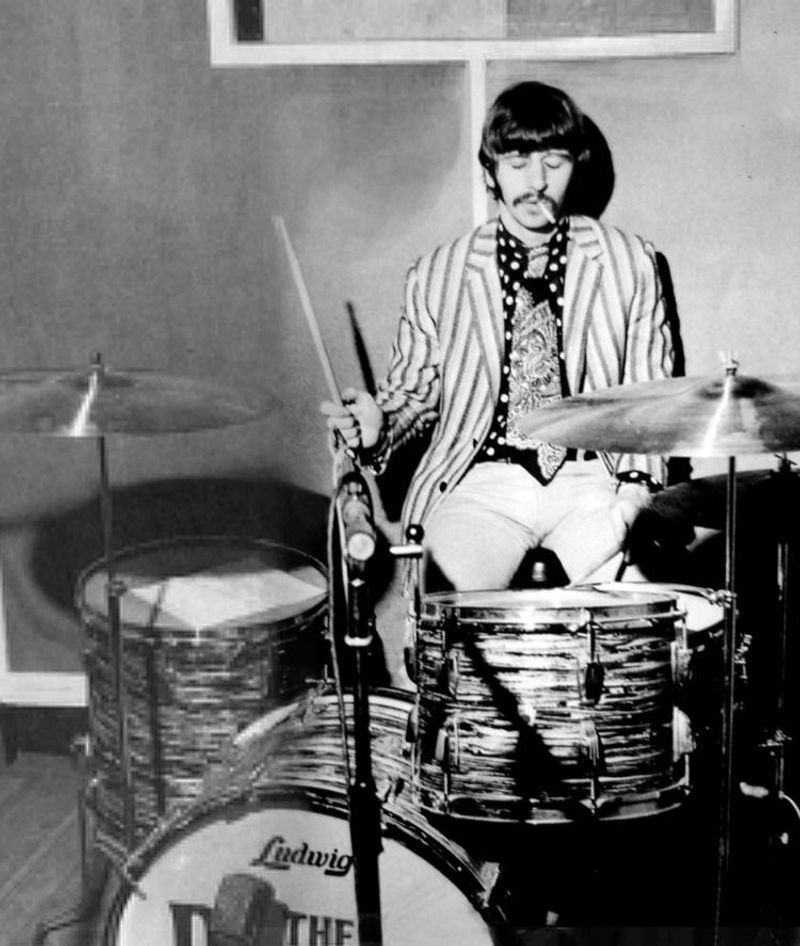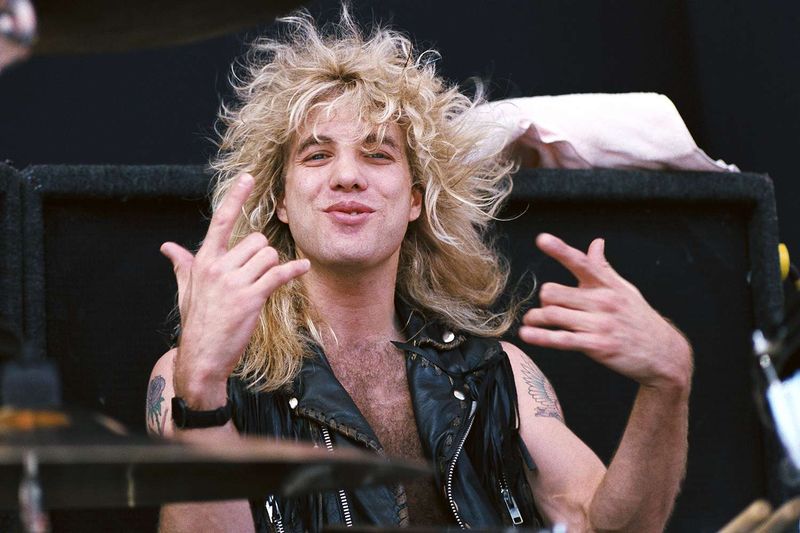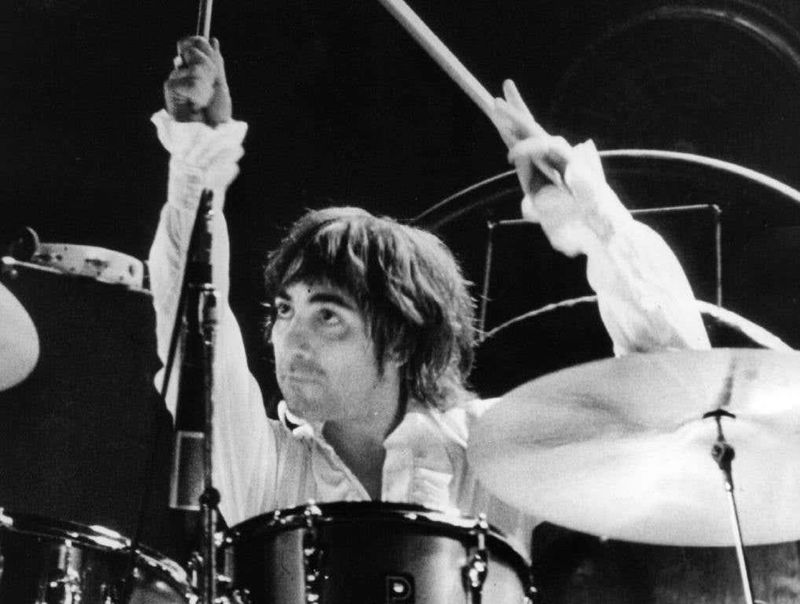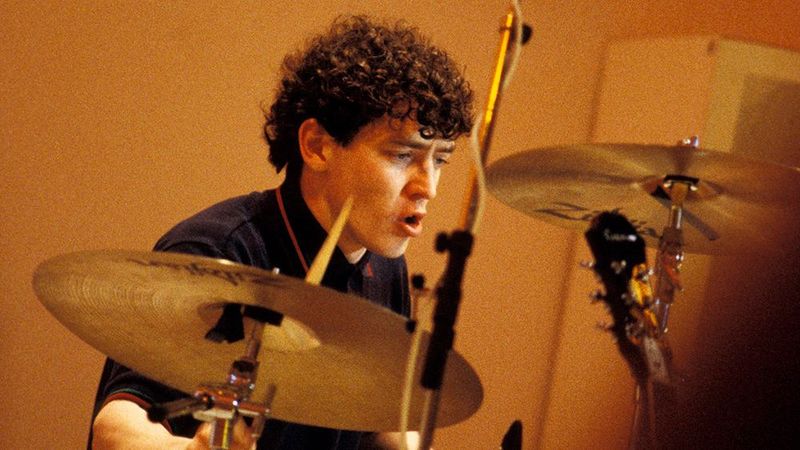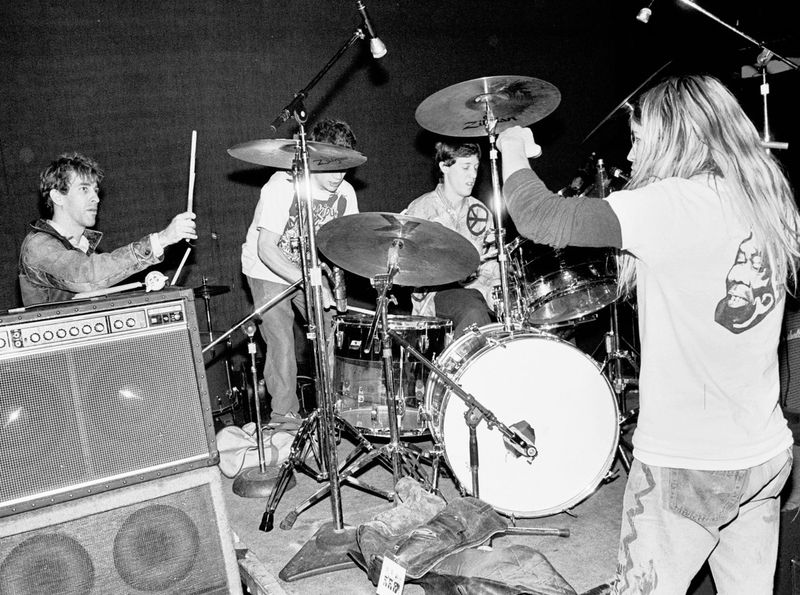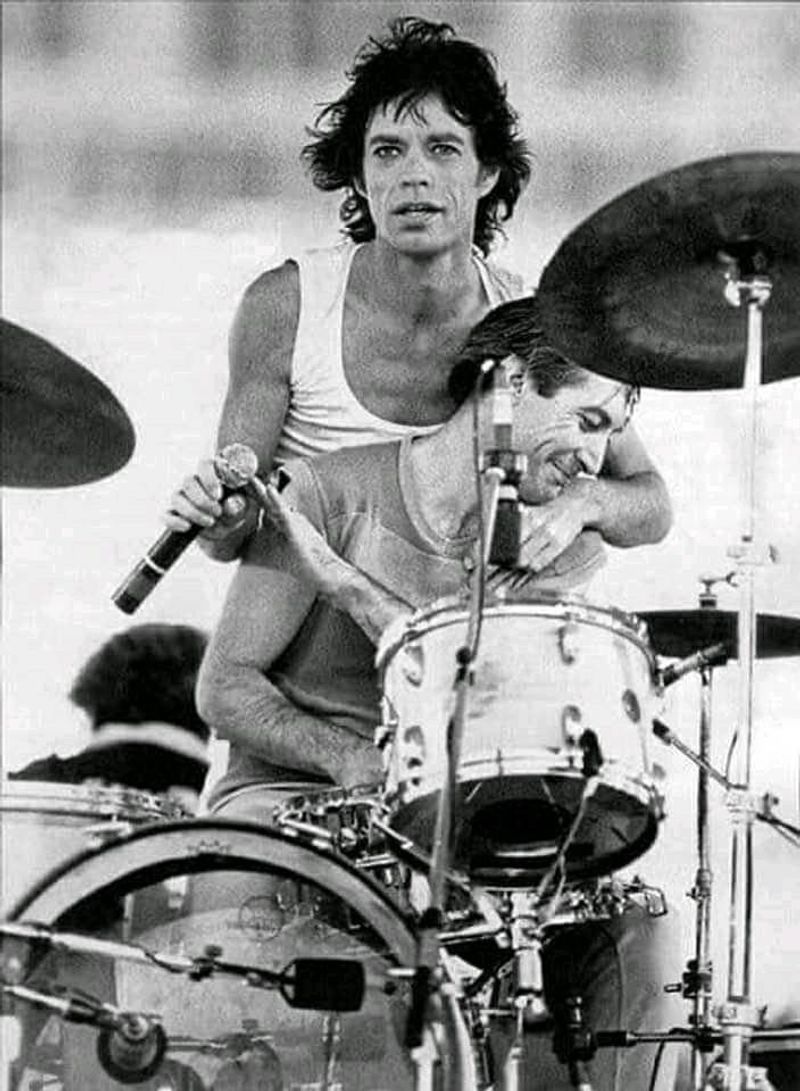Behind the curtain of thundering beats and on-stage charisma, not every band has kept the peace with the one behind the kit. From egos and erratic behavior to creative clashes and public meltdowns, these famous bands had serious issues with their drummers—some so bad they couldn’t keep it a secret forever.
1. The Beatles — Ringo Starr
Though Ringo Starr is now adored by fans, he wasn’t always beloved within the Fab Four. During the recording of The White Album, tensions flared so badly that Ringo quit the band temporarily, feeling sidelined and underappreciated.
Paul McCartney often re-recorded Ringo’s drum parts without telling him—a major point of resentment. His departure was brief, but it highlighted the underlying tension.
In Ringo’s absence, the band members shifted roles to fill the void, emphasizing his importance despite the friction. His return symbolized a fragile harmony, yet the episode remains a significant chapter in Beatles lore.
2. Guns N’ Roses — Steven Adler
Steven Adler helped define the raw sound of Appetite for Destruction, but his struggles with substance abuse quickly soured his standing. His drumming was the backbone of their debut, yet his addiction became a liability.
The band eventually fired him in 1990, citing his inability to perform. Despite being one of the founding members, his departure was filled with bitterness—and lawsuits followed.
Adler’s exit marked the end of an era, as the band sought stability amid chaos. His story serves as a cautionary tale of fame’s darker side, highlighting the personal cost of rock stardom.
3. Smashing Pumpkins — Jimmy Chamberlin
Jimmy Chamberlin’s drumming helped define the band’s early success, but his heroin addiction led to chaos. His skill was unmatched, yet addiction shadowed his contributions.
After a 1996 overdose that resulted in the death of touring keyboardist Jonathan Melvoin, frontman Billy Corgan had enough and fired him. Despite later rejoining, the scars lingered.
Chamberlin’s journey with the band was turbulent, filled with both brilliance and turmoil. His story illustrates the thin line between artistic genius and self-destruction, as well as the enduring impact of personal demons on professional relationships.
4. The Who — Keith Moon
Keith Moon was a genius on the drums and a nightmare offstage. His wild antics, heavy drinking, and tendency to destroy hotel rooms (and instruments) made him more of a liability than a bandmate at times.
Though they loved him, The Who often feared what Moon would do next. His unpredictable nature was both endearing and exhausting.
Moon’s legacy is as much about his music as his lifestyle, embodying the rock and roll ethos with wild abandon. His presence was irreplaceable, yet his personal chaos left an indelible mark on the band’s history.
5. Metallica — Lars Ulrich
You might not expect a founding member to be the source of band friction, but Lars Ulrich has long been a polarizing figure within Metallica. His controlling nature, often seen as both a strength and a flaw, created internal strife.
The infamous Napster battle further rubbed fans and bandmates the wrong way. Even in their documentary Some Kind of Monster, band tensions with Lars took center stage.
The band’s dynamic showcased a delicate balance between creative genius and personal conflict. Ulrich’s legacy is intertwined with both success and controversy, making him a uniquely complex figure in rock history.
6. Oasis — Tony McCarroll
Oasis was never short on drama, and Tony McCarroll bore the brunt of it in the early years. His straightforward style clashed repeatedly with Noel Gallagher, who criticized his drumming as basic and limited.
By 1995, McCarroll was ousted just as the band hit global stardom—and he never forgave them. His departure marked a turning point as Oasis refined their sound.
McCarroll’s story reflects the harsh realities of band politics, where artistic vision and egos often collide. Despite the bitterness, his role in Oasis’s rise remains a significant chapter in their storied history.
7. Pink Floyd — Nick Mason
Nick Mason might’ve stayed with Pink Floyd for decades, but that doesn’t mean things were always smooth. Roger Waters and David Gilmour often viewed his playing as technically inferior.
At times, session drummers were brought in during recording, with Mason unaware his parts had been replaced. Despite this, his steady presence was crucial to the band’s long-term success.
Mason’s experience highlights the complex dynamics within successful bands, where creative differences and personal relationships intertwine. His resilience and adaptability ensured his place in the band, even amid ongoing tensions.
8. Red Hot Chili Peppers — Jack Irons
Jack Irons was the original drummer, but the band’s chaotic lifestyle took a toll. After the death of guitarist Hillel Slovak, Irons couldn’t handle the madness anymore.
He quit and later expressed disdain for the band’s drug-fueled environment. It was mutual: the group moved on with little sentiment.
Iron’s departure marked a pivotal shift in the band’s trajectory. His experience is a testament to the personal toll of a fast-paced rock lifestyle, illustrating the broader challenges musicians face when fame and personal values collide.
9. Blink-182 — Scott Raynor
Before Travis Barker’s show-stopping entrance, Blink-182 had Scott Raynor behind the kit. His youthful vigor was a driving force, yet his alcohol issues and clashes with bandmates led to his firing mid-tour.
They told fans he left for “educational reasons,” but Scott revealed later it was anything but amicable. His exit paved the way for Barker’s arrival, reshaping the band’s identity.
Raynor’s story is one of unfulfilled potential and personal struggle, serving as a poignant reminder of the pressures young musicians face. His brief tenure remains a crucial chapter in Blink-182’s evolution.
10. The Rolling Stones — Charlie Watts
While not openly hated, Charlie Watts often seemed disconnected from the rest of The Rolling Stones. A jazz lover among rock ‘n’ roll wild men, he clashed with Mick Jagger multiple times.
Famously punching Mick after being called “just the drummer,” Watts maintained a dignified presence despite the chaos around him. Respect was mutual, but friendship? Not so much.
Watts’ story highlights the contrast between personal and professional relationships within bands. His steadfast demeanor provided stability amid rock star antics, underscoring the diverse personalities that fueled the Stones’ enduring success.
11. Dream Theater — Mike Portnoy
Mike Portnoy was a founding member and creative force—but his intense perfectionism rubbed others raw. His vision and leadership were undeniable, yet friction was inevitable.
When he left in 2010, it shocked fans, but insiders knew of long-standing frictions. The band moved on with a new drummer, and Portnoy’s return was long considered unlikely due to lingering resentment.
Portnoy’s departure reflects the challenges of maintaining harmony in a band driven by ambition and talent. His story adds a layer of intrigue to Dream Theater’s legacy, exemplifying the complexities behind creative collaborations.

